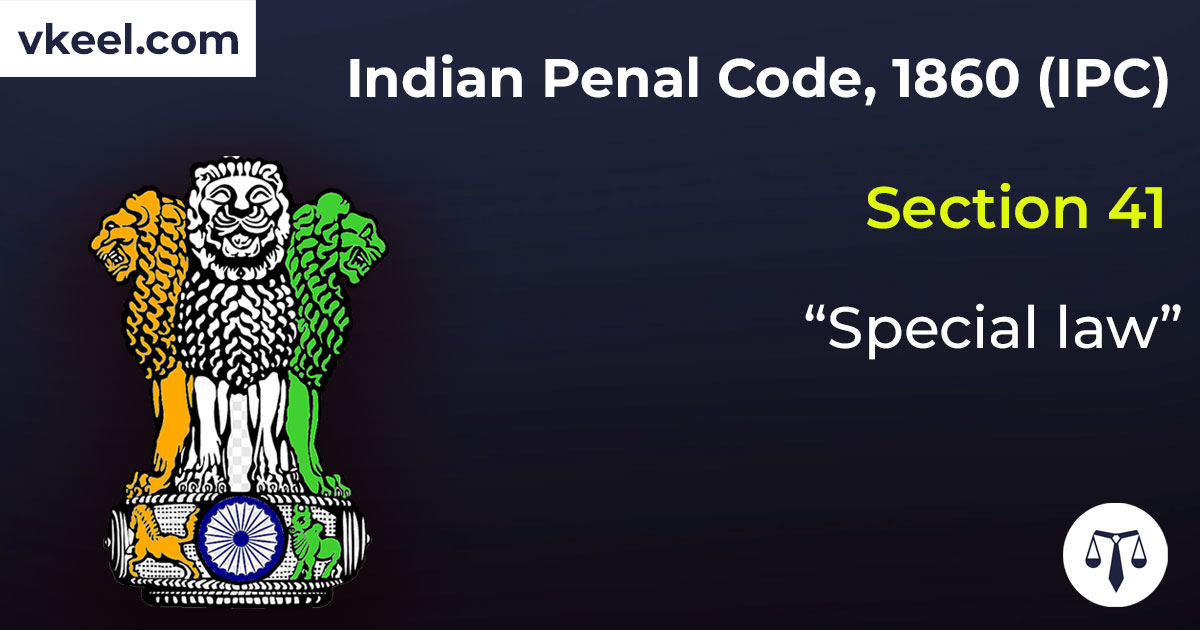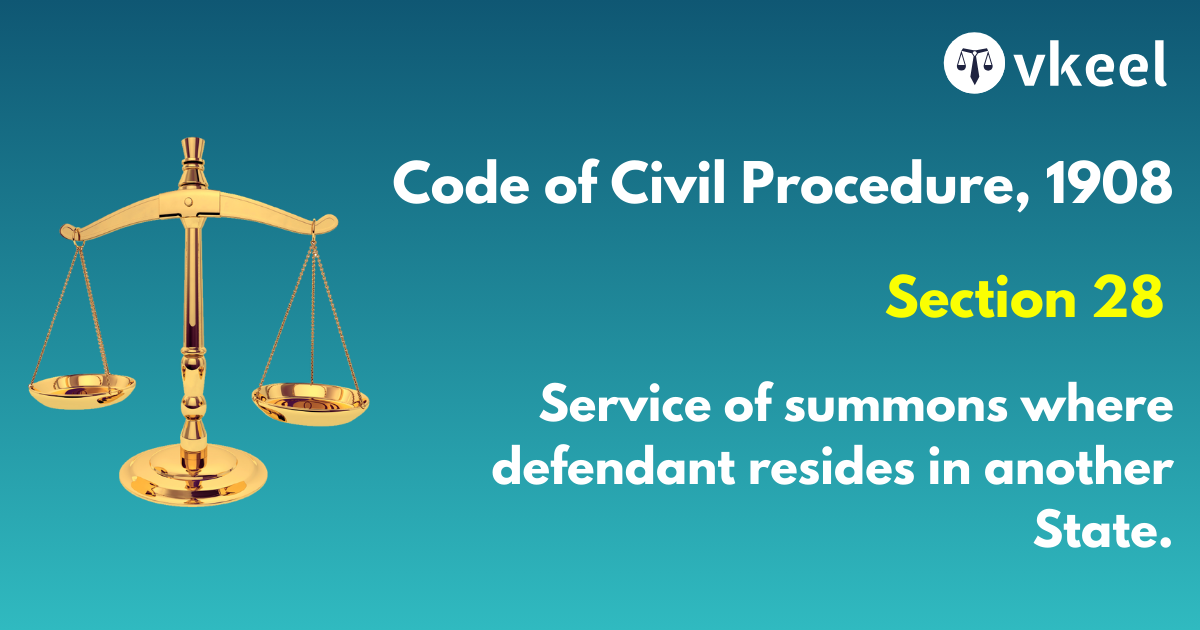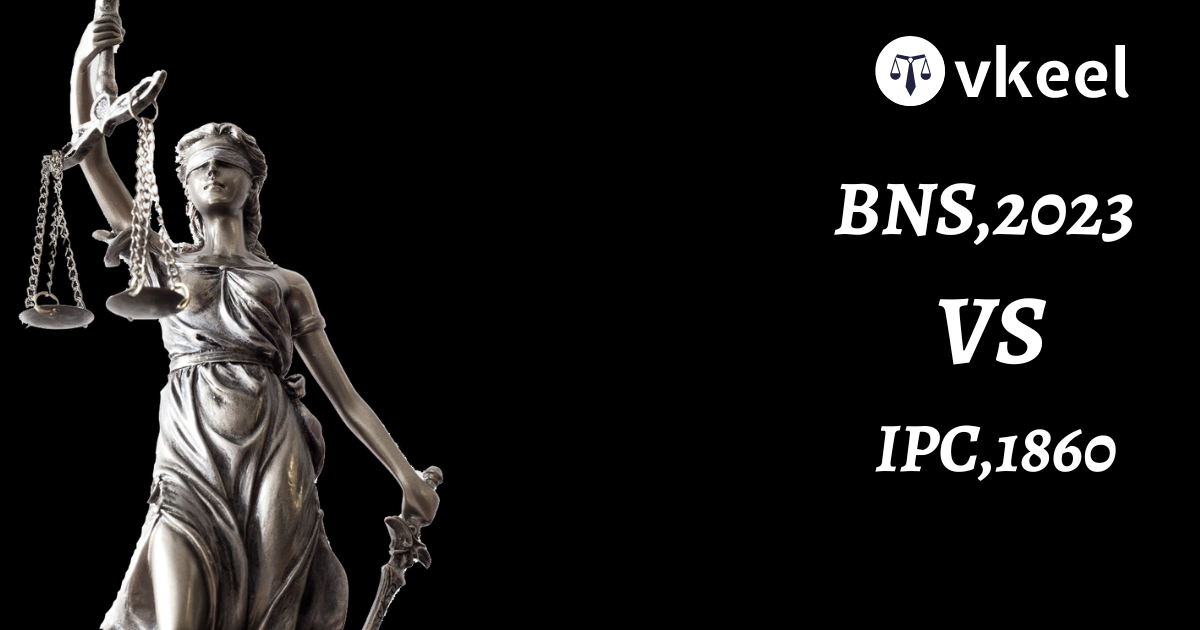Section 41 Indian Penal Code 1860 (IPC) – “Special law”
By Vkeel Team
Table of Contents
Description
“Section 41 Indian Penal Code 1860 (IPC)”
A “special law” is a law applicable to a particular subject.
Understanding Section 41 of the IPC
Section 41 of the Indian Penal Code 1860 (IPC) falls under the chapter titled “Of the Criminal Justice System.” It encompasses the concept of a “special law” and outlines the principles and procedures for its application. A special law refers to a law that governs specific offenses or categories of offenses, providing distinct regulations and mechanisms apart from the general provisions of the IPC.
The Purpose and Scope of Section 41
The primary purpose of Section 41 is to establish a framework for the effective implementation of special laws within the Indian legal system. Special laws are enacted to address particular social, economic, or political issues that require specialized attention and regulations. By creating separate provisions for these laws, Section 41 ensures that the legal framework is tailored to meet the specific requirements of these offenses, facilitating fair and just legal proceedings.
One of the key features of Section 41 is its ability to empower law enforcement agencies to investigate and prosecute offenses under special laws effectively. It grants police officers the authority to make arrests without a warrant when they have reasonable grounds to believe that a person has committed an offense under a special law. This provision ensures prompt action by the authorities to maintain law and order and protect public interests.
Section 41 of IPC also imposes certain restrictions and safeguards to prevent the misuse of power by law enforcement agencies. It mandates that the police officer making an arrest under this section must record the reasons for doing so in writing. Furthermore, the officer must inform the person being arrested of the grounds for their arrest, ensuring transparency and accountability in the process.
Special Laws Covered by Section 41
Section 41 of IPC encompasses a wide range of special laws that have been enacted to address specific societal concerns. Some of the notable special laws covered under Section 41 include:
- Narcotic Drugs and Psychotropic Substances Act (NDPS) – The NDPS Act aims to combat the illicit drug trade, regulate controlled substances, and deter drug-related offenses.
- Prevention of Corruption Act (PCA) – The PCA aims to prevent corruption among public servants and establish mechanisms for investigation and prosecution of corruption cases.
- Protection of Children from Sexual Offences Act (POCSO) – The POCSO Act provides comprehensive protection for children against sexual offenses and establishes stringent procedures for investigation, trial, and rehabilitation of victims.
- Information Technology Act (IT Act) – The IT Act deals with cybercrimes, electronic evidence, and data protection, addressing the challenges posed by advancements in technology.
Implications and Significance
The inclusion of Section 41 in the IPC holds immense significance for the Indian legal system. By recognizing the need for specialized legislation, the provision acknowledges the diverse nature of offenses and the necessity for tailored legal frameworks to address them effectively. This ensures that laws are context-specific, enabling the authorities to handle offenses with the required expertise and sensitivity.
Furthermore, Section 41’s provision for warrantless arrests empowers law enforcement agencies to take immediate action when dealing with offenses under special laws. This expedites the investigation process and helps maintain public order, particularly in cases where delay could lead to the destruction of evidence or the continuation of illegal activities.
Conclusion
Section 41 of the Indian Penal Code 1860 plays a pivotal role in the effective implementation of special laws in the Indian legal system. By providing a framework for the application of special laws, Section 41 ensures that offenses related to specific societal concerns are addressed comprehensively. It grants law enforcement agencies the power to make arrests without a warrant when there are reasonable grounds to believe that a person has committed an offense under a special law.
Desctiption Source: indiacode
Disclaimer:
The information provided in the article is for general informational purposes only, and is not intended to constitute legal advice or to be relied upon as a substitute for legal advice. Furthermore, any information contained in the article is not guaranteed to be current, complete or accurate. If you require legal advice or representation, you should contact an attorney or law firm directly. We are not responsible for any damages resulting from any reliance on the content of this website.












